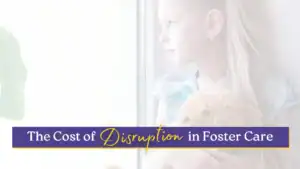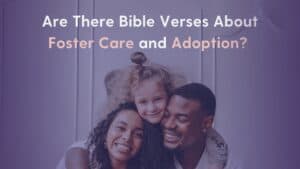Setting up for an evening training, I looked forward to sharing the impact of foster care and adoption on the biological children in the family. As the participants entered the classroom, I was stunned at who they were. Yet, the group looked like a room full of empty nesters. Overall, I was expecting young couples parenting young children. Basically, there wasn’t a person under fifty-five. As the group settled in, I suggested that since this topic targeted bio kids and foster care, I could share a different topic.
No, someone said. “We are here tonight to discuss this impact on our adult bio kids. There are so many questions and concerns cropping up which we didn’t expect.” One woman, Theresa, raised her hand and asked to share a story. “We recently adopted Matthew, now six,” she said. “I have two biological sons; one is Jonathan, who is 28, and Derek, who is 21. Later, Jonathan embraced Matthew when he entered our family three years ago. Derek’s response was far different.” He felt replaced. Once the family knew about his feelings, they were able to adjust.
Simultaneously that evening, I learned much about empty nester foster and adoptive parents. We discussed some key topics that we will address here. Interviewing empty-nester foster and adoptive parents from across the country provided a greater understanding of their support needs. We talked about the following issues:
- Why did you choose to foster or adopt at this stage in your life?
- What is the impact on grown children and families?
Why Foster or Adopt When Your Children Are Grown?
Tracy lives in Florida and is the parent of three biological young adults. “We started fostering when our youngest was still in high school. Our church sponsors a large foster and adoption ministry, so we heard about it constantly,” she commented. Later, It began to weigh on our hearts. “Our children were all born within five years of each other and left home around the same time. We had room. We had time, and most importantly, we felt God calling us to do this.”
Eventually, Tracy and her husband began fostering infants to support young families with reunification. “We enjoyed being a part of helping young families to heal and get their children back.”
“However, one little fellow, whose birth mom was a very young teen, came to our home with her as an infant and never left. We took her in and had them both for two years. This young birth mom didn’t feel equipped to be Joshua’s mom and wanted to leave. He stayed, and now is our seven-year-old son.” Other empty nesters shared the same sentiment of supporting reunification by bringing a family together. They felt God’s call to share their lives and their home.
Impact on Grown Children
“Why would you want to adopt when you finally have margin in life for yourself? You could travel and do many things, but being tied down with adopted children doesn’t make sense,” Eric, 33, questioned his father. In their late 50s, his parents had just adopted a sibling group of three, whom they had had as foster children for two years. Specifically, the oldest is 11.
The response from grown children whose parents decide to foster and adopt is as varied as every family. Subsequently, some jump on board and help. Likewise, others are somewhat supportive. However, many question the decision and a portion want little to no involvement. Shortly, I will share specific strategies to involve biological children. In any event, I will share four concerns that, if unaddressed, could cause family disharmony.

Balancing Time between Foster Children and Bio-Grandchildren
Generally, David and his wife, Michelle, grandparents of five, found balancing their time with the needs of their foster child and the activities with their biological grandchildren as their biggest challenge. “I am a very active grandfather,” commented David. “The kids’ games are important to me. However, since becoming a foster parent, my time has been focused on our foster son’s appointments and meetings. I knew that would happen; I didn’t know how that would make me feel. It is so hard for me to call our oldest grandson to tell him I will miss another game,” David said. “We have talked about it, of course, and he understands. But I know he misses me when I am not there.” Therfore, it is important to take take outside of the game to be with each other.
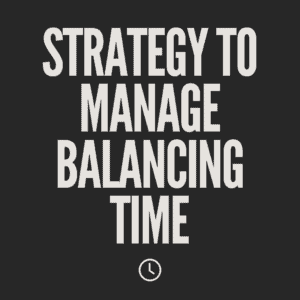
Strategy to Manage Balancing Time
- Get those essential grandchildren’s activities on the calendar. Be intentional.
- Work with caseworkers and other professionals around schedules. There can be flexibility in most cases, including birth family visitation.
Parental Safety
“Our son’s biggest concern for us,” commented Todd and Holly, “was our safety.” Todd and Holly primarily do respite foster parenting, which means many children are in and out of the home for short periods. “Our son’s image of the foster care world wasn’t good, and he worried that our involvement with the system and birth families might not be safe for us to do,” Todd said.
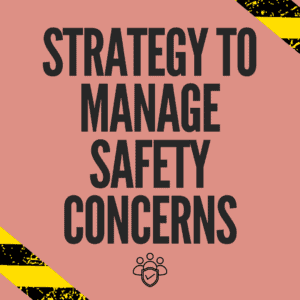
Strategy to Manage Safety Concerns
• Keep your adult children informed about the safety measures you are taking if needed.
• Encourage your adult children to take foster care pre-service classes to learn more about foster care.
Becoming Family
What is the perspective of adult children toward the latest addition to the family? How easily did the family members integrate him into the picture?
For Tracy, because their youngest son was still in high school when Joshua came to the family, he could be involved in his life. Still, one of her joys is that when Rob comes home, now that he is a college graduate and away from home, the first thing he continues to do when arriving at the door is call for his brother.
“Hey bro, where are you?” he always shouts. “Josh comes running, and they both wrestle around, ending in bear hugs,” Tracy shared. “Rob knows how important this is for Josh to have a sense of belonging. So do my other children.” However, for other families, that integration takes time.
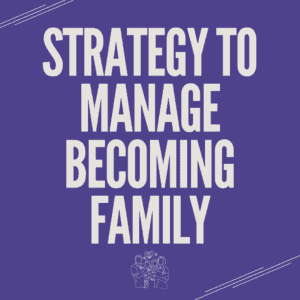
Strategy to Manage Becoming Family
- Keep expectations for your adult children in perspective. The foster care/adoption dream was yours, not theirs.
- Address any feelings they have about the newest child and what hesitancy they feel might be blocking their acceptance of that child as a family member.
- Share how important it is for your newest child to feel a sense of belonging in the family and suggest ways they can develop that relationship.
- Don’t judge or shame your adult children for struggling with making this new child a part of the family.
- Keep it a matter of prayer.
Future Care for Adopted Children
As an adoption worker, several years ago, we worked with a foster family in their late 50s as they planned to adopt two elementary-age youngsters. As adoption day neared, I received a phone call that potentially would place everything on hold. Sarah, the foster-to-adopt mom, was diagnosed with cancer. My first thought was, we cannot proceed.
I went to their home for a visit, and to my surprise, their two adult children were there to meet with me, too. The family laid out their plan for everyone to help with Ben and Whitney during their mom’s recovery. With optimism in everyone’s voices, they assured me that no matter what, they were there for their parents and the children. Thankfully, Sarah recovered fully, and we celebrated adoption day. I knew that should the need arise in the family, their adult children would be there for everyone.
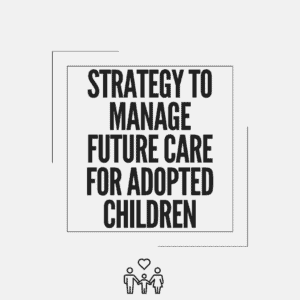
• As a foster family moves toward adoption, involve all the family members in the planning.
• Have that difficult conversation regarding the need to step in should something happen to the adoptive parents.
• Make sure those plans are spelled out in any necessary legal documents.
Undoubtedly, some concerns must be addressed with adult children of empty nesters. However, the good news is that most parents related that their families grew in love for the new children in the home. Likewise, they embraced them for whatever time they were with the family and involved them in their children’s lives. It indeed became a family call. For additional information and resources please visit our Wait No More page.













